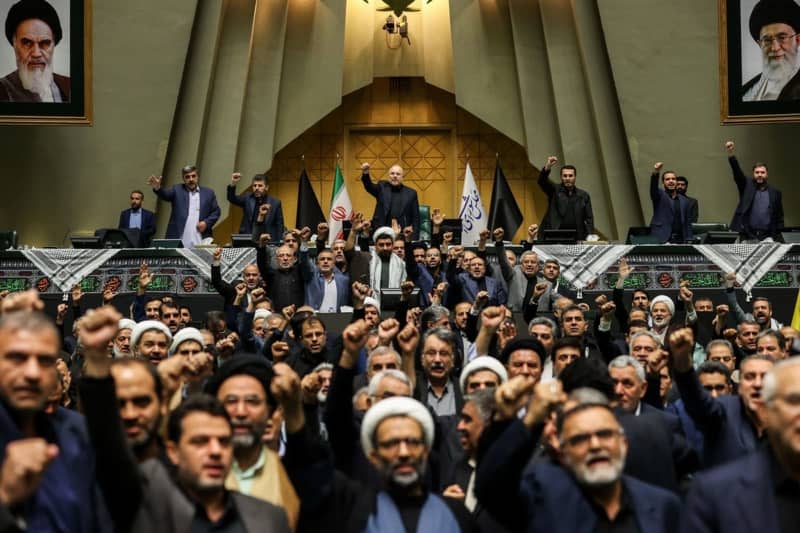Following the death of Hezbollah leader Hassan Nasrallah in an Israeli airstrike in Beirut, pressure has been mounting on the regime in Tehran, the biggest ally of the Lebanese militia, to react.
But while the government hails Nasrallah as a martyr and has ordered five days of national mourning, some Iranians have different concerns.
“I don’t like Hezbollah, they act like a terrorist group,” Tehran resident Elnas told dpa on a rainy Monday morning in the Iranian capital.
“Of course, Israel has also shown with the recent attacks (in Lebanon) that they act like terrorists,” she adds.
The 30-year-old says she isn’t sad about Nasrallah’s killing, but what she does fear is a widening of the conflict.
The Islamist leader’s death has further fuelled concerns over a major escalation that could draw in other regional players, including Iran.
Hezbollah is allied with the regime in Tehran, which considers Israel its arch-enemy. While the Iranian leadership has strongly condemned Nasrallah’s killing, it has so far not indicated that it might be willing to carry out a possible retaliatory response directly.
The Lebanese militia, considered a terrorist organization by the US, the European Union and Israel, has been launching attacks on northern Israel since the beginning of the Gaza war in support of Hamas.
Following almost a year of cross-border skirmishes, Israel launched a massive aerial campaign on targets across Lebanon earlier this week, with the stated aim of pushing back Hezbollah forces to enable the return of tens of thousands of residents evacuated from northern Israel amid the fighting.
Hundreds of people have been killed in the bombardment so far, and tens of thousands displaced.
Another Tehran resident, Saeed, 35, said that while he was indifferent to the news of Nasrallah’s death, he too is gradually becoming worried about the developments in the region.
“Such events have a negative impact on the country’s economy. For example, the value of the rial fell after the confirmation of this news,” he says.
Asghar, 38, mourns the death of Nasrallah, saying as a Muslim, he is saddened by it. “Of course, Iran is trying not to react in any particular way to avoid further conflict,” he adds.
Mojtaba, 40, meanwhile says he was “glad to hear the news” of Nasrallah’s killing.
“I hope that the death of the leaders of these groups will lead to a reduction in the 40-year conflict between Iran and the world.”









